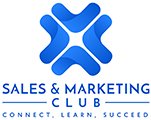In the ever-evolving world of sales, the importance of continuous learning and improvement cannot be overstated. As markets shift, customer preferences change, and technology advances, sales professionals must adapt and grow to remain competitive and successful. This blog explores the significance of continuous learning in the realm of sales and offers practical tips on how to enhance sales skills over time.
The Dynamic Nature of Sales
Sales is a dynamic field that is constantly in flux. What worked in sales a decade ago may not be as effective today, and what works today may become obsolete tomorrow. This dynamic nature stems from several factors, including changing consumer behavior, emerging technologies, evolving industry trends, and global economic shifts.
Consumer Behavior: Customers’ preferences, expectations, and buying habits are continually evolving. Today’s consumers are more informed and empowered than ever before, thanks to the wealth of information available online. Sales professionals must stay attuned to these changes to effectively engage and meet the needs of modern customers.
Emerging Technologies: The sales landscape is significantly impacted by technology. CRM (Customer Relationship Management) software, automation tools, and AI-powered sales analytics are transforming the way sales professionals interact with prospects and manage their pipelines. Keeping up with these technological advancements is essential for staying competitive.
Evolving Industry Trends: Industries are constantly changing and adapting to market demands. Sales professionals need to keep abreast of industry trends and best practices to maintain relevance in their field.
Global Economic Shifts: Economic changes, such as recessions or economic booms, can significantly affect sales cycles and strategies. Staying informed about these shifts is crucial for adapting sales tactics accordingly.
The Benefits of Continuous Learning in Sales
Continuous learning in sales is not merely a survival strategy; it offers a range of benefits that can significantly enhance one’s career and earning potential:
- Increased Sales Performance: Sales professionals who invest in ongoing learning tend to outperform their peers. They are more adaptable, can leverage new techniques and tools effectively, and are better at identifying and capitalizing on emerging opportunities.
- Enhanced Customer Engagement: Understanding evolving customer preferences and behaviors is vital for building meaningful relationships with prospects. Continuous learning enables salespeople to connect with customers on a deeper level, addressing their needs more effectively.
- Improved Confidence and Motivation: As sales professionals acquire new knowledge and skills, their confidence and motivation tend to soar. They feel more capable of overcoming challenges and achieving their sales targets.
- Higher Earning Potential: Better performance and consistently meeting or exceeding sales targets can lead to increased commissions and bonuses. Continuous learning can directly translate into a higher income for sales professionals.
- Career Growth: Learning and adapting in sales can open up new career opportunities. Those who stay ahead of the curve are more likely to be considered for promotions and leadership roles.
Practical Tips for Enhancing Sales Skills Over Time
- Stay Informed: Make it a habit to read industry news, blogs, and publications regularly. Following thought leaders and staying updated on the latest trends will keep you well-informed.
- Invest in Training and Development: Attend workshops, seminars, and webinars. Many organizations offer training programs to help their sales teams acquire new skills and stay competitive.
- Leverage Technology: Embrace CRM software, sales automation tools, and analytics platforms to streamline your sales process. These tools can help you manage leads, track interactions, and make data-driven decisions.
- Learn from Successful Colleagues: Seek mentorship or collaborate with colleagues who have a track record of success. Learn from their experiences, strategies, and techniques.
- Set Clear Goals: Establish specific, measurable, achievable, relevant, and time-bound (SMART) goals for your sales targets. Regularly assess your progress and adjust your approach as needed.
- Role-Play and Practice: Engage in role-play exercises to refine your communication and negotiation skills. Practicing various scenarios can help you become more confident and adaptable in real sales conversations.
- Customer Feedback: Actively seek feedback from your customers. Understand their pain points and expectations, and use this information to refine your approach.
- Self-Reflection: Regularly reflect on your sales performance. What worked, and what didn’t? Analyze your successes and failures to identify areas for improvement.
- Networking: Attend industry events and conferences to expand your network and gain insights from others in the field. Building strong professional relationships can provide valuable knowledge and support.
- Read Sales Literature: There are numerous books and resources on sales techniques and strategies. Reading these can provide you with valuable insights and practical tips.
Conclusion
Continuous learning and improvement are essential for enhancing sales skills over time. The dynamic nature of the sales field necessitates adaptability and a commitment to staying ahead of industry trends, customer behavior, and technological advancements. By investing in ongoing learning and incorporating practical tips into your sales approach, you can consistently evolve and excel in the competitive world of sales. Whether you are a seasoned sales professional or just starting your sales career, the commitment to continuous learning will be your key to success in the ever-evolving sales landscape.


















